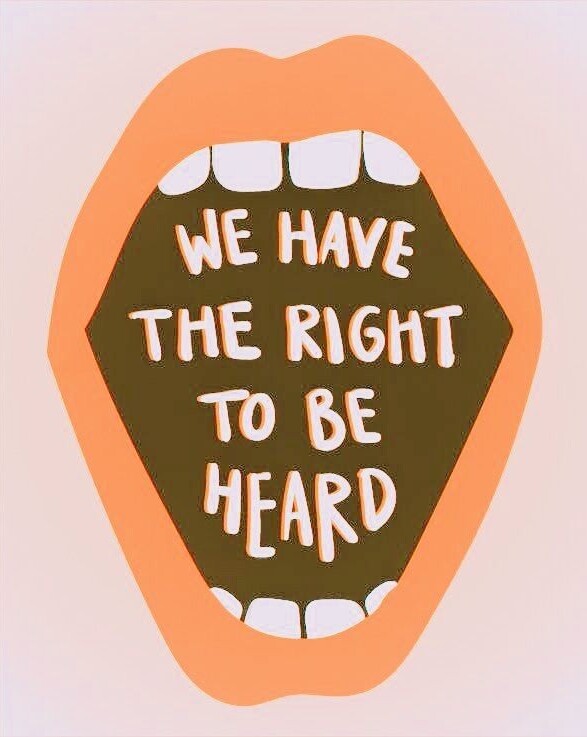
Picture Source: Pinterest
Consent is an essential concept for teenagers as they navigate their evolving identities and relationships. For South Asian girls, understanding consent can be particularly complex due to cultural expectations, societal norms, and a lack of open dialogue about boundaries and autonomy. By redefining these boundaries, teenage South Asian girls can assert their rights, foster healthy relationships, and contribute to changing societal perceptions about women’s agency.
Historical Context: Traditional Expectations and Cultural Challenges
In many South Asian communities, young girls grow up in environments where conformity, family honor, and modesty are emphasized over personal choice and expression. This context often leaves teenage girls ill-equipped to advocate for themselves, especially in situations where their consent or lack thereof matters.
Historically, conversations around relationships, body autonomy, and consent have been absent from public and private spheres, leaving many South Asian girls with limited access to education on these critical topics. Over time, however, feminist movements and cultural shifts have begun to challenge these norms, creating opportunities for younger generations to redefine boundaries.
The Role of PSAs in Educating South Asian Teenagers
Public Service Announcements (PSAs) play a critical role in bridging the gap between cultural taboos and the need for consent education. Campaigns like Breakthrough India’s Consent is Everything aim to simplify the concept of consent, framing it as a mutual agreement essential in all interactions.
In the UK, the Hansel and Gretel PSA reimagines the classic tale to demonstrate the importance of recognizing boundaries and listening to each other. Although not South Asian-specific, its universal appeal makes it relevant for teenage audiences globally, including South Asian girls navigating similar challenges.
Case Studies: PSAs That Resonate
Some campaigns directly address teenagers, offering relatable scenarios to highlight the importance of consent. For example, India’s It’s Not Okay PSA series uses real-life stories to emphasize the significance of verbal and enthusiastic consent, challenging the myth of “implied” agreement.
These PSAs resonate deeply with teenage South Asian girls by portraying situations they may encounter, such as peer pressure, societal judgment, and the need for assertiveness. By contextualizing consent within culturally familiar settings, these campaigns encourage self-awareness and confidence in making personal decisions.
The Power of Storytelling: Real-Life Impact
Media representation can inspire teenagers to engage with the concept of consent on a deeper level. Films like Akaash Vani demonstrate the devastating consequences of ignoring consent within marriage, offering a poignant narrative that resonates with South Asian audiences. Vani’s experience, enduring marital assault and struggling to find support, highlights the urgent need for conversations about consent, even in culturally sensitive contexts like arranged marriages.
For teenagers, these stories are powerful tools for reflection, fostering empathy and empowering them to challenge harmful norms.
Barriers to Understanding Consent
Despite the growing awareness, several barriers hinder teenagers’ understanding of consent in South Asian communities. These include:
- Lack of Comprehensive Education: Sex education, including consent, is often absent or stigmatized in schools, leaving teenagers uninformed.
- Cultural Resistance: Many families avoid discussions about relationships or autonomy, considering them taboo.
- Peer Pressure and Misinformation: Social dynamics among teenagers can perpetuate myths about consent, reinforcing harmful behaviors.
Overcoming these barriers requires collective action from families, educators, and community leaders to create a supportive environment for open dialogue.
Influencers and Activists: Catalysts for Change
Teenage South Asian girls are increasingly finding role models in influencers and activists who advocate for consent and gender equality. Platforms like Girls Who Code and SheThePeople amplify voices that challenge traditional norms, offering relatable content that resonates with younger audiences.
Social media influencers of South Asian descent also use their platforms to discuss consent, using humor, storytelling, and education to engage with teenagers and their families. This visibility empowers teenage girls to advocate for themselves while normalizing these conversations within their communities.
Evaluating the Impact of PSAs
The effectiveness of PSAs in educating teenagers can be seen in changing attitudes and increased awareness. Studies show that PSAs featuring relatable scenarios and clear messaging significantly improve teenagers’ understanding of consent.
For example, surveys following the release of Hansel and Gretel showed increased recognition of the importance of boundaries and mutual respect among teenage viewers. Similar results have been observed with South Asian campaigns that integrate cultural nuances into their messaging.
Future Directions: Supporting Teenage Girls Through Consent Education
The journey toward redefining boundaries for teenage South Asian girls is far from over. To continue this progress, future efforts must include:
- Comprehensive Consent Education: Schools and community programs should incorporate age-appropriate and culturally sensitive discussions on consent.
- Family Workshops: Engaging parents alongside teenagers can bridge generational gaps and encourage open dialogue.
- Culturally Relevant Campaigns: PSAs must reflect the unique challenges faced by South Asian girls, offering relatable and empowering messages.
By creating environments where consent is understood and respected, society can empower teenage South Asian girls to define their boundaries confidently and navigate relationships with dignity.
Conclusion
Consent is more than a concept; it’s a right that empowers individuals to make choices that align with their values and comfort levels. For teenage South Asian girls, understanding and asserting this right can pave the way for healthier relationships, greater self-confidence, and a future where their voices are heard and respected. Through PSAs, storytelling, and community initiatives, society can redefine boundaries and ensure that every teenage girl knows her worth and power.
No Responses